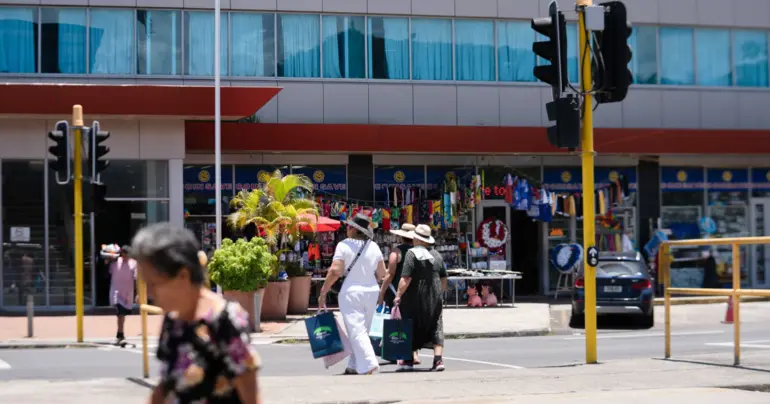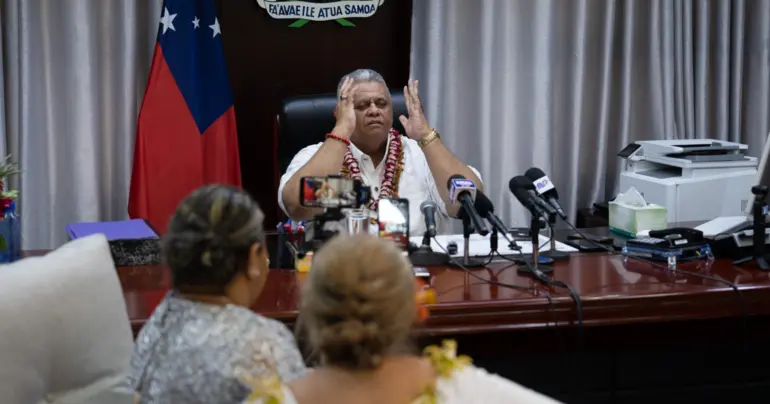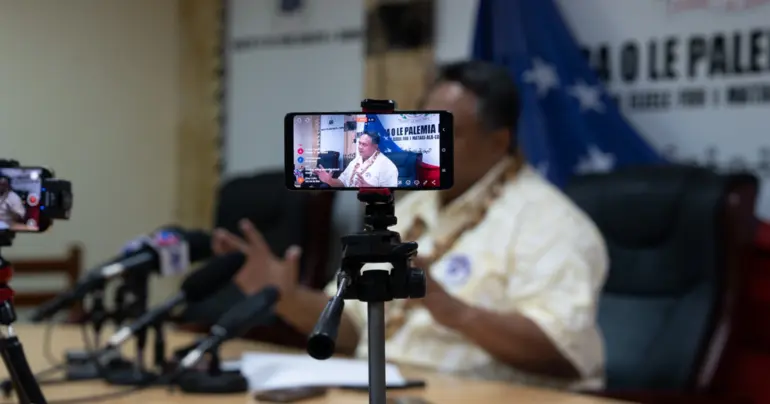Rule change's benefits far beyond the field
Among the injustices perpetrated against Pacific nations in the post-colonial era, the exploitation of our modern rugby talent may not rank highly for its enormity but its sheer hypocrisy is hard to beat.
A plummy accented old boy’s club from across the Anglosphere who have had World Rugby in their grasp for decades prize rhetoric about sportsmanship and fair play when they have been doing precisely the opposite.
But that has seemingly been brought to an end with reforms to players’ eligibility laws passed by World Rugby this week that will change the game for poorer and talented Pacific nations such as Samoa.
It is difficult to overstate the significance of this change for our on the field performance. But it also presents opportunities beyond competitive rugby itself which the Government would do well to seize while momentum is on our side.
Under the watershed change, players are eligible to switch nations if they have not been selected for a country for three years - a figure particularly significant ahead of the 2023 World Cup.
Reflecting the power imbalance in the game’s international governance, the rule change was only possible after receiving support from a massive 75 per cent majority of country representatives.
The change rights an injustice that has been plaguing the sport, for which we must commend campaigners such as former Manu Samoa forward Daniel Leo who have been tireless in their campaign to right wrongs.
The rule change came as a surprise in a game in which exploiting Pacific nations’ talents has become embedded in its global culture.
It was only this month that at Twickenham Stadium England squared up against Tonga. For their efforts, ʻIkale Tahi players were paid some GBP£500. Their British opponents? Some £23,000 in match fees alone.
In Samoa national heroes who were part of the country’s team who won the 2009–10 Rugby Sevens Series have finished their careers only to return to lives of swinging hammers or driving cabs while the athletes they vanquished have retired comfortably.
The issue of financial inequalities in dividing gate earnings needs to be the subject of further reforms before we can declare rugby a truly even playing field.
But the change to national eligibility rules is a major step forward for Pacific rugby.
Until now, eligibility laws have tied players to the one nation for which they earned their first cap.
This has led to a devastating squandering of Pacific talent.
As players have, understandably, been lured to wealthy countries, often while young and with the promise of higher salaries and educational opportunities, they had been unable to play for their mother countries even if only taking the field for another only once.
This law has led to a tremendous waste of talent and held back Pacific nations on the world stage despite our obvious ability to produce talent and passion for the game.
At its most egregious, the previous laws led to Pacific players being fielded by national teams such as the All Blacks in second string clashes for the sole reason of avoiding the team’s top stars risking injury.
Some of these players have never been picked again; their international careers over after the most inauspicious of debuts.
This waste of talent is brought home by a most powerful statistic: Between Fiji, Samoa and Tonga — with our combined population of fewer than 1.5 million people — we have provided more than a quarter of professional international rugby players.
Now that this long-needed change has been achieved it is imperative that we continue to seize the momentum of change: both in agitating for further international reform and maximising the new rules for Samoa’s national benefit.
Indeed, the Government, whose election manifesto included a commitment to use the Manu Samoa as part of their tourism marketing campaign, was a policy formulated well before such a change was thought possible.
It has now been supercharged.
The role of sports in building international bridges is well known. But with a national team now able to lift its profile and performance, returning Samoans who have built profiles playing for wealthy nations, such as Manu Tuilagi in England, will be the perfect ambassadors for elevating Samoa as a destination in the minds of fans from wealthy countries.
We think the Government should go even further and make hay of the opportunities presented by the rule change as perhaps the biggest single opportunity for raising Samoa’s tourism profile in generations.
It may even be an opportune time for the Samoa Rugby Union and its scouts and officials to begin working in conjunction with the Samoa Tourism Authority to find players with name recognition in potential new markets to feature in advertising and promotion.
A tremendous blow for equality in international sport has been struck. And Samoa's chance to benefit from this righted wrong extends far beyond the field of play.










